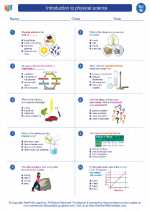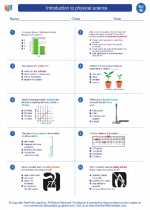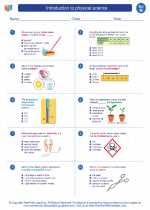Seedless Vascular Plants
Seedless vascular plants are a diverse group of plants that have specialized tissues for conducting water and nutrients, but do not produce seeds. This group includes plants such as ferns, club mosses, and horsetails. They are called "seedless" because they reproduce by spores instead of seeds.
Characteristics of Seedless Vascular Plants
- Vascular Tissues: Seedless vascular plants have specialized vascular tissues called xylem and phloem, which allow for the transport of water, nutrients, and sugars throughout the plant.
- Spore Production: Instead of seeds, seedless vascular plants reproduce by producing spores. Spores are single-celled reproductive structures that can develop into new plants under suitable conditions.
- Roots, Stems, and Leaves: Seedless vascular plants have well-developed roots for absorption of water and nutrients, stems for support and transport, and leaves for photosynthesis.
- Alternation of Generations: Seedless vascular plants typically exhibit an alternation of generations, with a multicellular haploid (gametophyte) and diploid (sporophyte) phase in their life cycle.
Examples of Seedless Vascular Plants
Some common examples of seedless vascular plants include:
- Ferns: Ferns are well-known seedless vascular plants that have large, compound leaves called fronds. They reproduce by spores found on the undersides of their fronds.
- Club Mosses: Club mosses are small, moss-like plants that belong to the group of seedless vascular plants. They have creeping stems and reproduce via spores.
- Horsetails: Horsetails, also known as scouring rushes, are another group of seedless vascular plants characterized by their jointed, hollow stems and whorls of needle-like leaves.
Importance of Seedless Vascular Plants
Seedless vascular plants have ecological and economic importance. They contribute to soil stabilization, nutrient cycling, and provide habitat for various organisms. Additionally, some species of ferns are used in horticulture and landscaping, while others have medicinal properties.
Study Guide
When studying seedless vascular plants, consider the following key points:
- Describe the characteristics of vascular tissues in seedless vascular plants.
- Explain the role of spores in the reproductive cycle of seedless vascular plants.
- Compare and contrast the life cycles of ferns, club mosses, and horsetails.
- Identify the ecological and economic importance of seedless vascular plants.
- Discuss the adaptations of seedless vascular plants to terrestrial environments.
Understanding the unique features and significance of seedless vascular plants is essential for grasping the diversity and complexity of the plant kingdom.
.




